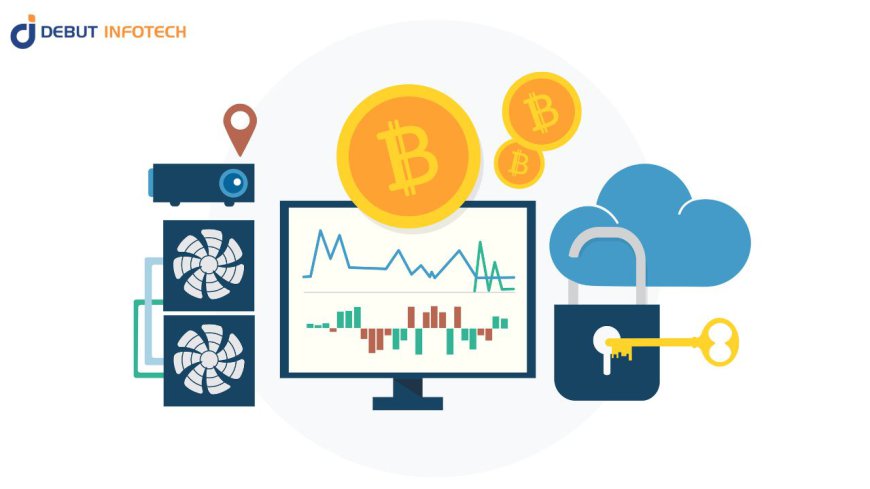Understanding Decentralized Wallet: The Future of Digital Finance

In the ever-evolving landscape of cryptocurrency and blockchain technology, decentralized wallets have emerged as essential tools for managing digital assets. Unlike traditional wallets, which are often controlled by third-party entities, decentralized wallets empower users by providing them complete control over their funds. This article explores the intricacies of decentralized wallets, their advantages, and their role in the broader context of digital finance.
What is a Decentralized Wallet?
A decentralized wallet, also known as a non-custodial wallet, is a type of cryptocurrency wallet that allows users to store and manage their digital assets without relying on a centralized service provider. These wallets leverage blockchain technology to ensure that users have sole ownership of their private keys, which are crucial for accessing and controlling their cryptocurrencies.
Decentralized wallets come in various forms, including software wallets (desktop or mobile applications) and hardware wallets (physical devices). They support various cryptocurrencies and tokens, enabling users to interact with multiple blockchain networks.
How Decentralized Wallets Work
At the core of decentralized wallets is the concept of cryptographic security. When a user creates a decentralized wallet, a pair of cryptographic keys is generated: a public key and a private key. The public key acts like an address that others can use to send cryptocurrency to the wallet, while the private key is a secret code that must be kept confidential. This private key is what allows the user to authorize transactions and access their funds.
Because the private key is stored locally on the user's device rather than on a centralized server, it significantly reduces the risk of hacks and unauthorized access. Users can manage their funds directly from their wallets, making transactions and interacting with decentralized applications (dApps) without needing intermediaries.
Advantages of Decentralized Wallets
-
Control and Ownership: The most significant advantage of decentralized wallets is that users have full control over their private keys and, consequently, their funds. This eliminates the risks associated with third-party custodians, where users may lose access to their assets due to hacks or service failures.
-
Enhanced Security: With decentralized wallets, the risk of centralized hacks is minimized. Since private keys are not stored on a central server, hackers cannot access users' funds through a single point of failure. Furthermore, many decentralized wallets offer additional security features, such as biometric authentication and multi-signature support.
-
Privacy: Decentralized wallets often provide enhanced privacy compared to centralized exchanges or wallets. Users do not need to share personal information to create a decentralized wallet, allowing for greater anonymity in transactions.
-
Interoperability: Many decentralized wallets support multiple cryptocurrencies and tokens, enabling users to manage a diverse portfolio of digital assets from a single interface. This interoperability is crucial in an increasingly fragmented blockchain ecosystem.
-
Access to Decentralized Finance (DeFi): Decentralized wallets allow users to interact directly with DeFi protocols, enabling them to lend, borrow, stake, and trade assets without relying on traditional financial institutions. This access opens up a world of financial opportunities and innovations.
Types of Decentralized Wallets
-
Software Wallets: These are applications that can be installed on computers or mobile devices. They provide user-friendly interfaces and are suitable for daily transactions. However, they can be vulnerable to malware and phishing attacks if not properly secured.
-
Hardware Wallets: These are physical devices that store users' private keys offline, providing enhanced security against online threats. Hardware wallets are ideal for long-term storage of cryptocurrencies, as they are less susceptible to hacks.
-
Web Wallets: While still decentralized, these wallets are accessible through web browsers. They offer convenience but may be more vulnerable to phishing attacks. Users should ensure they are using reputable services.
Choosing the Right Decentralized Wallet
When selecting a decentralized wallet, users should consider several factors:
-
Security Features: Look for wallets that offer strong security measures, such as two-factor authentication, backup options, and encryption.
-
User Experience: Choose a wallet with an intuitive interface that suits your level of expertise. A user-friendly wallet can enhance your overall experience.
-
Supported Assets: Ensure that the wallet supports the cryptocurrencies and tokens you wish to manage. Some wallets may have limited compatibility with specific blockchain networks.
-
Community and Support: A wallet with an active community and responsive customer support can be invaluable, especially for troubleshooting and learning how to use the wallet effectively.
Conclusion
Decentralized crypto wallets represent a fundamental shift in how individuals manage and interact with their digital assets. By providing users with complete control, enhanced security, and access to innovative financial solutions, decentralized wallets are paving the way for a more open and inclusive financial ecosystem. As the cryptocurrency landscape continues to evolve, understanding and utilizing decentralized wallets will be essential for anyone looking to navigate the world of digital finance. Whether you are a seasoned investor or a newcomer to the crypto space, embracing decentralized wallets is a crucial step towards financial autonomy and empowerment.
